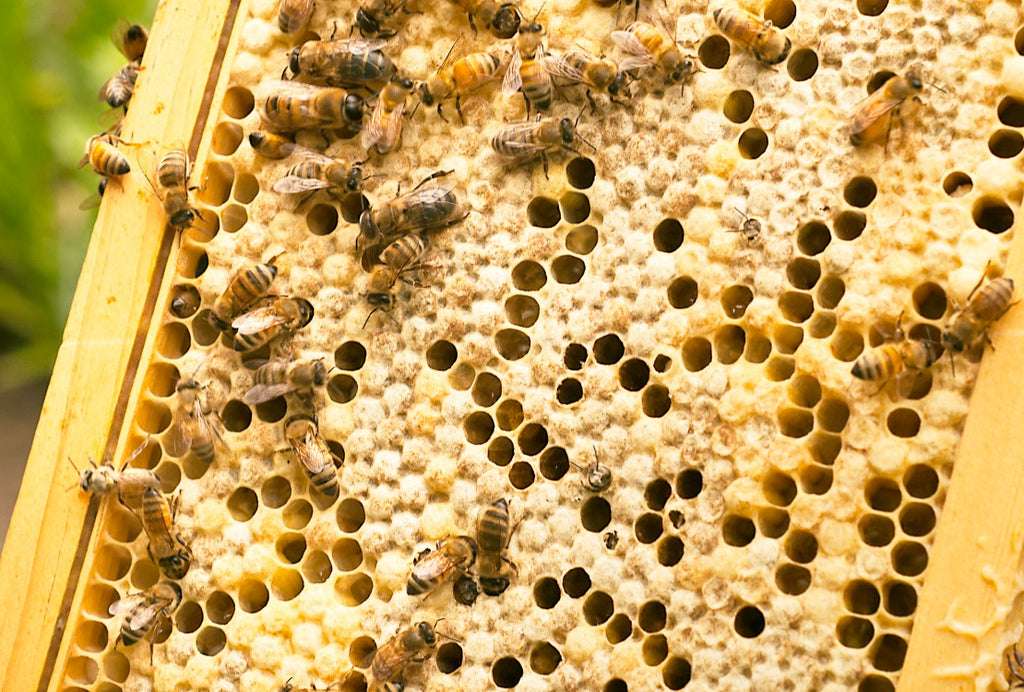Raw Honey & Bee Propolis
Bee Propolis has been used since antiquity to due to its healing properties. Over 300 compounds including polyphenols, coumarins, amino acids, steroids and inorganic components have been isolated in propolis.
Benefits May Include:
Strengthening the immune system.
Stimulating white blood cells.
Providing protection against virus and bacterial infections.
Promotion healing of sores, wounds and eczema.
Acting as a natural-inflammatory.
Powerful antioxidant.
It is the high flavonoid content of propolis that authors of a 1995 study suggested was responsible for reducing acute and chronic rhino-pharyngeal symptoms among preschool and school-aged children. Those children given an aqueous propolis extract during that year's cold and flu season, also had reduced microbial flora in the upper airway tract. An added bonus: the children loved the taste! Recent 2012 research also shows that propolis extracts and propolis-based pharmaceuticals are effective against Candida and antibiotic multi-resistant Gram-positive bacteria. A 2012 in vitro study on 20 different Cuban propolis extracts showed propolis inhibited the growth of Staphylococcus aureus and Trichophyton rubrum at low µg/mL concentrations. It was also effective against Leishmania, Trypanosoma and Plasmodium protozoa. The most exciting research is using propolis as an adjuvant to flu vaccines. A 2012 animal study on chickens given a propolis adjuvant along with inactivated avian influenza and Newcastle vaccines showed that propolis enhanced the immune effect of these vaccines. Another 2012 study confirmed that a propolis adjuvant increased a vaccine's immunogenicity and ensured long-term protection.
Honey - A Natural Flu Fighter
An easily digestible carbohydrate, pure unprocessed honey has many health benefits. To start, honey has a low glycemic load (around 9-10 points per tablespoon) which helps reduce blood glucose levels and modulate the body's glycemic response. Pure honey appeals to our sweet tooth, tastes good, and is well-tolerated by both children and adults. Honey also contains minerals, proteins, amino acids, enzymes, vitamins and polyphenolic flavonoids. Research suggests that the flavonoids along with the hydrogen peroxide derived from honey glucose accounts for the antibacterial, anti inflammatory, antioxidant, antiparasitic and antimicrobial properties. Current literature suggests that the health promoting properties of raw honey can be realized at doses of 50 to 80g or 5-8 teaspoons daily. Combining honey with bee propolis or with black seed, gives the body an extra dose of energy: 20g of honey providing 3% of daily energy needs, as well extra disease-fighting potential as evidenced by the following research on propolis and black seed.
Note: This article should not be considered substitutes for professional medical care and are not intended to diagnose, treat, cure or prevent any specific disease and is for informational purposes only. Bee products may cause allergic reactions in some individuals, consult your health care practitioner for guidance.

